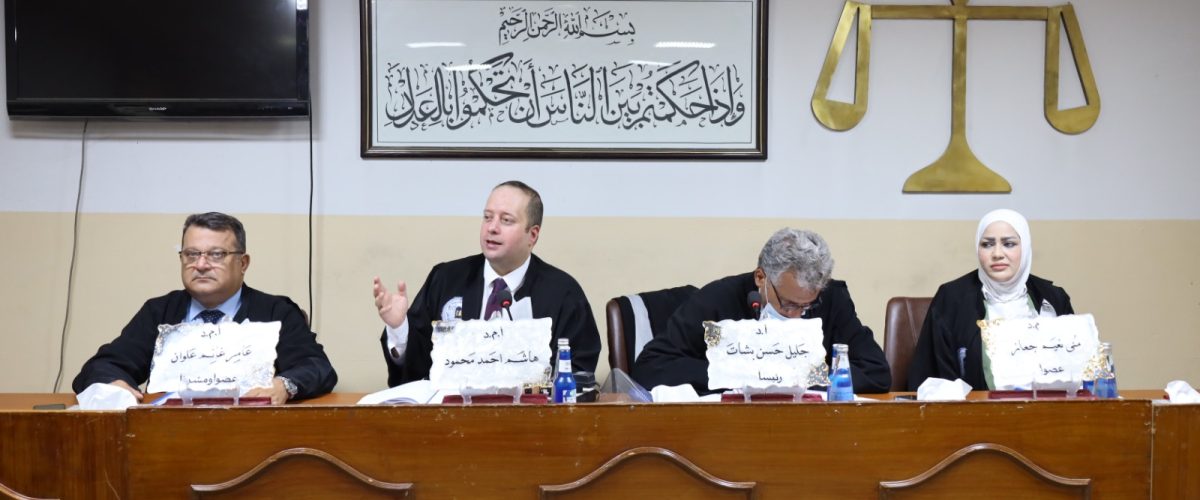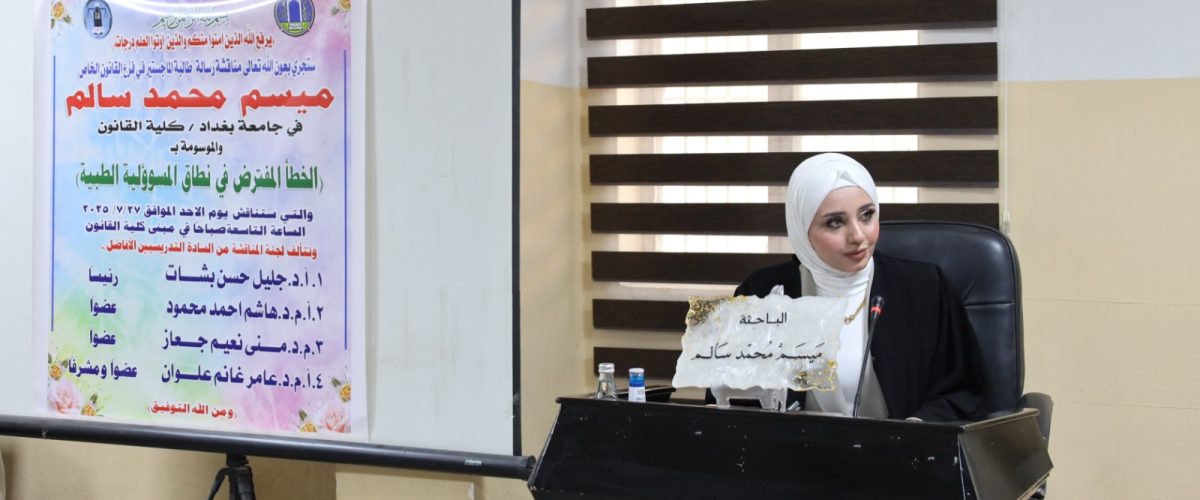The College of Law at the University of Baghdad discussed a master’s thesis entitled “Presumed Fault within the Scope of Medical Liability” by the student Maysem Mohammed Salem, in the Private Law Department, on Sunday, July 27, 2025, in the Virtual Courtroom Hall at the college.
The discussion committee consisted of:
1. Prof. Dr. Jaleel Hassan Beshat (Chairman)
2. Asst. Prof. Dr. Hashem Ahmed Mahmoud (Member)
3. Lecturer Dr. Muna Naeem Jaaz (Member)
4. Asst. Prof. Dr. Amer Ghanem Alwan (Member and Supervisor)
The thesis aimed to shed light on the plight of those harmed by medical practices. The rapid technological advancements in the medical field and the resulting increase in risks have made it difficult for patients to prove a physician’s fault. As a result, the judiciary has adopted the concept of simple presumed fault to reduce the burden of proof placed on the patient. This concept has no explicit legislative basis and is not specifically regulated in law; rather, it has been inferred by the judiciary due to the variety of errors committed by physicians, which have significant impacts on patients.
The thesis was divided into three chapters: the first addressed the nature of presumed fault in the context of medical liability; the second examined the basis of a physician’s liability arising from presumed fault and its legal nature; and the third discussed the elements of civil liability for presumed medical fault and its rulings in cases involving loss of opportunity.
The thesis concluded with several recommendations, the most notable of which are:
1. The Iraqi legislator should regulate the rules governing loss of opportunity, considering its loss as actual damage to the injured party, as well as establishing specific criteria for assessing compensation due to the probabilistic nature of such assessment. This is important both for the practical significance of loss of opportunity and for safeguarding the rights of the injured party.
2. The Iraqi legislator should add a provision to the Law of Evidence granting special treatment to the issue of proving presumed fault, contrary to the approach of the French legislator who shifted the burden of proof onto the physician. This would reduce the burdens placed on the patient and give them a greater chance of obtaining compensation.



